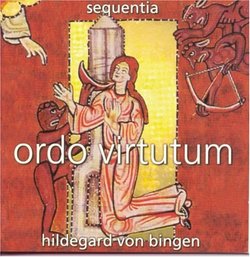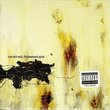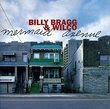| All Artists: Hildegard von Bingen, Cologne Sequentia Ensemble for Medieval Music Title: Hildegard von Bingen: Ordo Virtutum Members Wishing: 3 Total Copies: 0 Label: RCA Release Date: 4/7/1998 Genre: Classical Styles: Opera & Classical Vocal, Historical Periods, Classical (c.1770-1830), Early Music Number of Discs: 2 SwapaCD Credits: 2 UPC: 054727739422 |
Search - Hildegard von Bingen, Cologne Sequentia Ensemble for Medieval Music :: Hildegard von Bingen: Ordo Virtutum
 | Hildegard von Bingen, Cologne Sequentia Ensemble for Medieval Music Hildegard von Bingen: Ordo Virtutum Genre: Classical
Sequentia brought this extraordinary allegorical proto-opera to public attention with a recording and tour in 1982, at the beginning of the Hildegard boom. This new release is the culmination of the label's series of Hil... more » |
Larger Image |
CD DetailsSynopsis
Amazon.com essential recording Sequentia brought this extraordinary allegorical proto-opera to public attention with a recording and tour in 1982, at the beginning of the Hildegard boom. This new release is the culmination of the label's series of Hildegard's complete works in honor of the 900th anniversary of her birth. The earlier recording included a lot of intrusive instrumental doodling, but 16 years of experience have given Sequentia the courage to let the vocal lines (however plain) speak for themselves--and what glorious lines they are. The Soul's weary lament as she returns from her sojourn with the Devil and Victory's soaring solo upon the Devil's final defeat are astonishing. Fine singing and playing make this disc as fine a tribute as Hildegard and her fans could want. --Matthew Westphal Similarly Requested CDs
|
CD ReviewsChallenging, evocative dtrr | Florida USA | 01/22/2002 (4 out of 5 stars) "I was first introduced to Sequentia's Hildegard with their Canticles of Ecstacy, which entirely fits the description of meditative music. Ordo, Hildegard's first opus, is an allegory, with different voices representing the virtures. Some are melancholic, wistful; others are meditative; still other voices triumphant. It is a rich blend of beautiful voices, but one caveat to the seeker of background meditative music. In the allegory, the voice of the devil (a rasping male voice quite suitable to the allegory) bursts out in several scenes to mock and frighten the virtues. The devil cannot sing, of course, so he shouts. This will disturb the casual listener expecting nothing but soothing sounds. It is historically appropriate but not necessarily everyone's cup of tea." A piece of pure genius Economist | London England | 09/26/2002 (5 out of 5 stars) "Hildegard's Ordo Virtutum is a piece of genius. When it was written in the 12th century it was centuries ahead of its time and perhaps in some respect still is. Sequentia's interpretation matches the geniality of this music. The devil's intrusions are an invention without parallel. In the medieval mind, music was heavenly, meaning that the devil could not sing and could not be presented as vocal role. Instead, the devil can only grunt and shout unable to hide his true nature when faced by the virtues. This piece is certainly nothing for background listeners of medieval music." Ravishingly simple music BaldJean | 01/07/1999 (4 out of 5 stars) "To be honest, I have not heard this CD; however, I saw Sequentia perform Ordo Virtutum on their last tour and was stunned. The music is absolutely beautiful. Because the music lacks a melody, the focus is on the beauty of the human (mostly soprano) voice, and Sequentia withstands this scrutiny. Although Ordo Virtutum has been touted as the first opera, and does contain some character roles, its main appeal is as pure music. Listening to this qualifies as a spiritual experience."
|

 Track Listings (10) - Disc #1
Track Listings (10) - Disc #1








